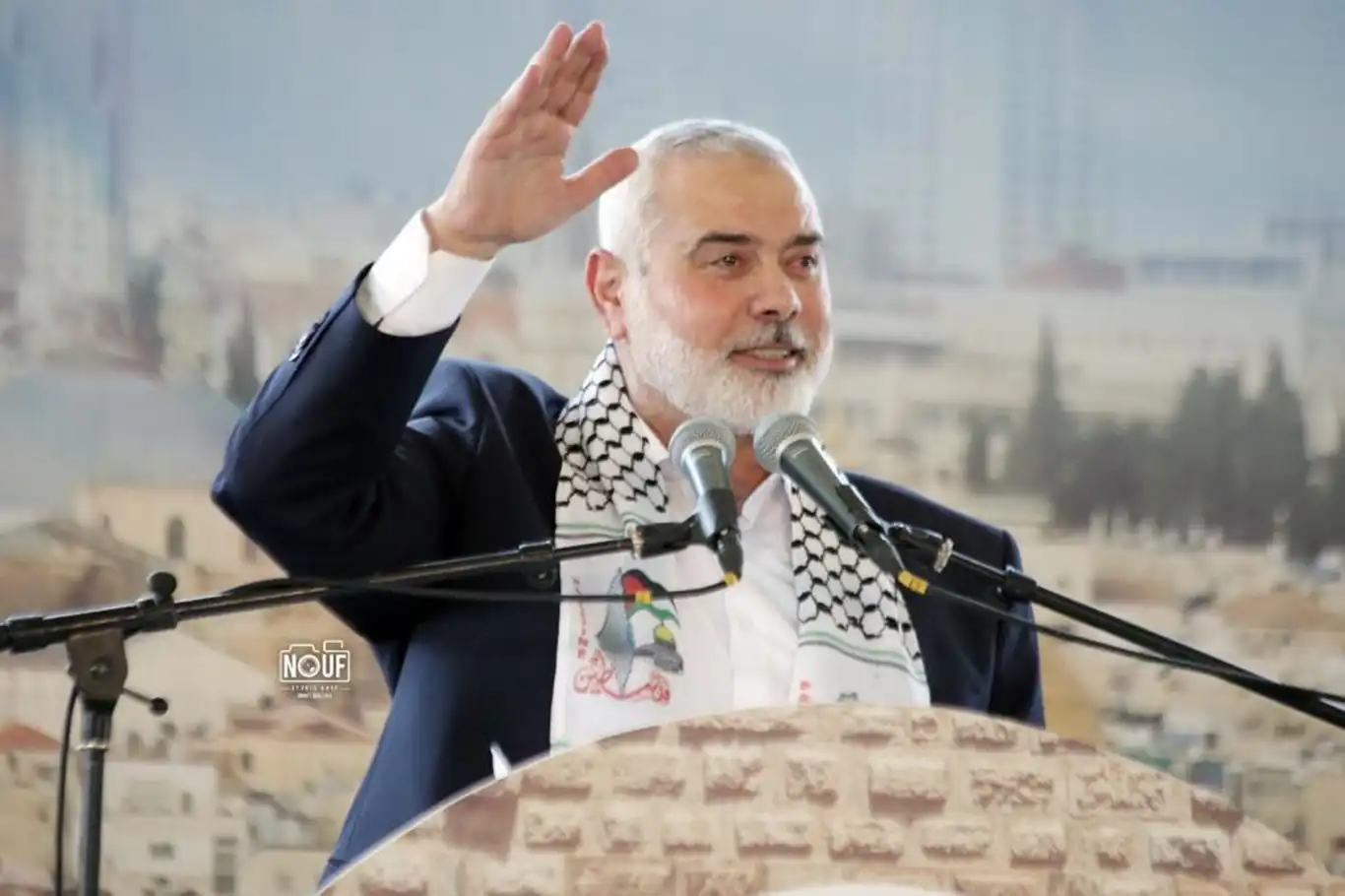Ismail Haniyeh: A life of resistance and sacrifice for Palestinian freedom


The martyrdom of Ismail Haniyeh, the head of Hamas' Political Bureau, in a "treacherous israeli strike" on Wednesday marks a somber yet significant chapter in the ongoing struggle for Palestinian freedom.
Haniyeh was killed when an assassination attempt targeted his residence in Tehran, where he was attending the inauguration ceremony of Iran’s newly elected president.
Ismail Haniyeh’s legacy is etched in the heart of Palestinian people. Born on May 23, 1963, in the al-Shati refugee camp in Gaza, Haniyeh's family was displaced from Asqalan during the 1948 Nakba, a tragedy that shaped his lifelong commitment to the Palestinian cause. He pursued higher education at the Islamic University in Gaza, earning a degree in Arabic Literature in 1987 and a doctorate in 2009.
His political journey began with the Islamic Bloc, the student arm of the Muslim Brotherhood, which later evolved into Hamas. As a university student, Haniyeh’s leadership was evident when he served on the student council and became its president. In 1989, Israeli forces arrested him, marking the beginning of a series of hardships that would only strengthen his resolve. After a year of exile in Marj al-Zuhur, Lebanon, he returned to Gaza and was appointed dean of the Islamic University.
Haniyeh's rise within Hamas was marked by his role as head of the bureau of Hamas founder Sheikh Ahmad Yassine in 1997. Following the martyrdom of Dr. Abdul Aziz Al-Rantisi in 2004, he was elected as the leader of Hamas in Gaza. His leadership was further solidified when he led the "Change and Reform" list to victory in the 2006 Palestinian legislative elections and assumed the role of Prime Minister.
Throughout his leadership, Haniyeh remained a symbol of steadfast resistance against occupation and oppression. His tenure saw several attempts on his life, including a notable airstrike by Israeli forces in 2003. Despite these challenges, Haniyeh’s commitment to the Palestinian cause remained unwavering.
In October 2023, during Operation Al-Aqsa Flood, Haniyeh appeared in a video broadcast from Doha, celebrating the successes of Hamas fighters and their resilience against Israeli aggression. His public statements and actions consistently echoed a spirit of resistance and defiance.
Tragically, Haniyeh’s family was also targeted by Israeli occupation forces. On April 10, 2024, an airstrike killed six of his relatives, including three of his sons and several grandchildren. Another attack on June 24 resulted in the deaths of ten more family members. Haniyeh, in his grief, declared that their sacrifice was a testament to the broader Palestinian struggle, reinforcing that their blood was no more precious than that of any Palestinian child.
In his 2014 speech criticizing the ongoing siege on Gaza, Haniyeh declared, "We are a people who declare victory should you declare a siege upon us... We cherish martyrdom on the path of our leaders the way others cherish political offices." His words have become a rallying cry for those who see the Palestinian struggle as a fight against injustice and occupation.
Ismail Haniyeh’s martyrdom is a profound loss for the Palestinian resistance movement. His life, marked by resilience and dedication, serves as a powerful symbol of the fight for justice and self-determination. As Palestinians and their supporters mourn his loss, Haniyeh’s legacy continues to inspire resistance and hope for a free and sovereign Palestine. (ILKHA)
LEGAL WARNING: All rights of the published news, photos and videos are reserved by İlke Haber Ajansı Basın Yayın San. Trade A.Ş. Under no circumstances can all or part of the news, photos and videos be used without a written contract or subscription.
The European Union is grappling with an unprecedented escalation in drug trafficking, with officials estimating that over 100 tons of cocaine enter the continent each year—a figure that European security agencies admit may represent only a fraction of the true scale.
On November 2, 1917, British Foreign Secretary Arthur James Balfour sent a short letter to Zionist leader Lord Rothschild, pledging Britain’s support for a Jewish homeland in Palestine.
One year has passed since Yahya Sinwar, the legendary leader of Hamas in the Gaza Strip, was martyred in a direct confrontation with Israeli forces in Rafah.
Two years have passed since the morning that forever altered the course of the Palestinian struggle — the dawn of October 7, 2023, when the besieged enclave of Gaza broke through its prison walls in a thunderous uprising now etched into history as Operation Al-Aqsa Flood.